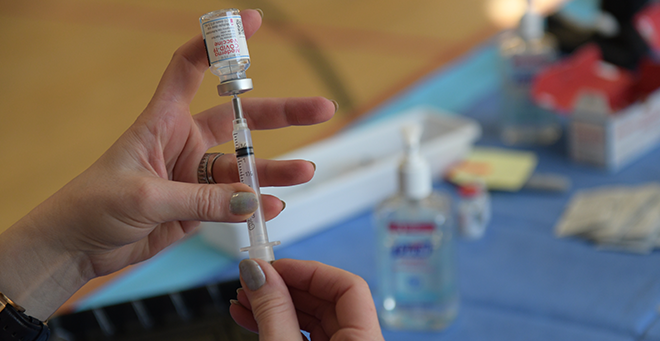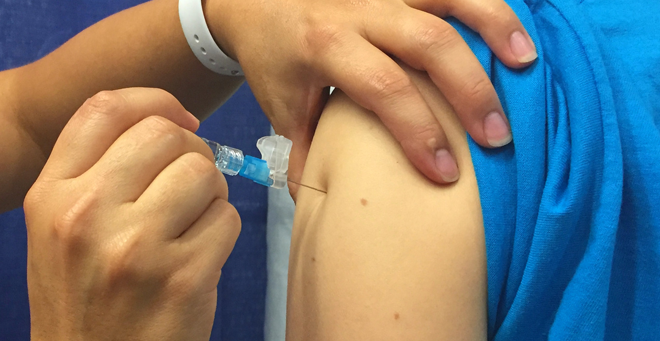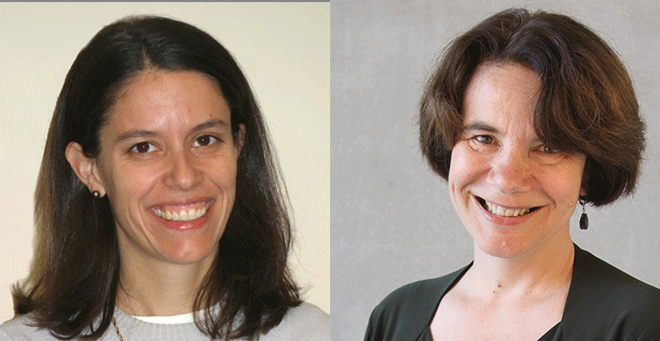
As the updated COVID-19 vaccine becomes available this fall, a study published by UMass Chan Medical School researchers on primary care physicians’ experience with vaccine-hesitant patients may shed light on the challenges and opportunities surrounding greater acceptance of the vaccines.
The paper published in Patient Education and Counseling featured focus groups with 40 primary care physicians (PCPs) practicing in Central Massachusetts. The focus groups were conducted December 2021 through January 2022, roughly a year after COVID-19 vaccines rolled out. Investigators focused on physicians’ experience with patients who were very hesitant and whom they couldn’t convince to get vaccinated.
Approximately one in six people in the United States has not gotten a single COVID-19 vaccine dose since they first became available in late 2020, according to the researchers.
“What we heard from the PCPs was just universal frustration with having a subset of patients who they felt like they couldn’t get through to, despite their pre-existing relationship and feeling like the patients really trusted them—which had been touted as one of the best ways to get people vaccinated,” said Kimberly Fisher, MD, associate professor of medicine and principal investigator.
Dr. Fisher said she believed this impasse reflected the level of disinformation being spread in society, with health care providers having to respond to it.
Fisher said the challenge continues as the pandemic has entered a new, endemic phase.
“In the early communication, public health officials obviously didn’t know that it would be required every year, and so I think there is a degree of frustration among patients about actually needing to get one every year, like a flu shot,” she said.
But there were two things that showed promise.
PCPs who were able to offer the vaccine on site at their clinic said that made a big difference, according to Fisher. Those anecdotes are consistent with a survey UMass Chan researchers conducted in January 2021 that found people who were vaccine hesitant were significantly more likely to prefer to be vaccinated at a doctor’s office. Other studies on flu vaccination found people were more likely to get the shot if the doctor could give it to them right then and there.
Approximately half of primary care practices involved in a different study offered COVID-19 vaccinations on site, said Fisher.
The second glimmer of hope came from a PCP who practiced what Fisher described as motivational interviewing. Fisher said, “She described really listening to people, and instead of launching into convincing them with reasons why they should get it, she took the time to find a way to affirm their concerns and show that she was partnering with them.”
Fisher and Daniel Mullin, PsyD, MPH, professor of family medicine & community health, recently received an R01 grant from the National Institute of Minority Health and Health Disparities to develop and test a communication training program. The program will train PCPs in both making a presumptive recommendation for vaccination, which previous research has shown to be effective at increasing vaccine uptake, but then also train providers in principles of motivational interviewing for vaccination communication.
As for the PCPs who discussed vaccine-hesitant patients in the focus group, many of them said they had learned to recognize whom they couldn’t convince, and they didn’t push it with them.
“And you know, they had really good reasons, the biggest one being that you want to preserve the relationship,” said Fisher. “Maybe they won’t get vaccinated. But you could still convince them to get a mammogram or colonoscopy or something else.”


